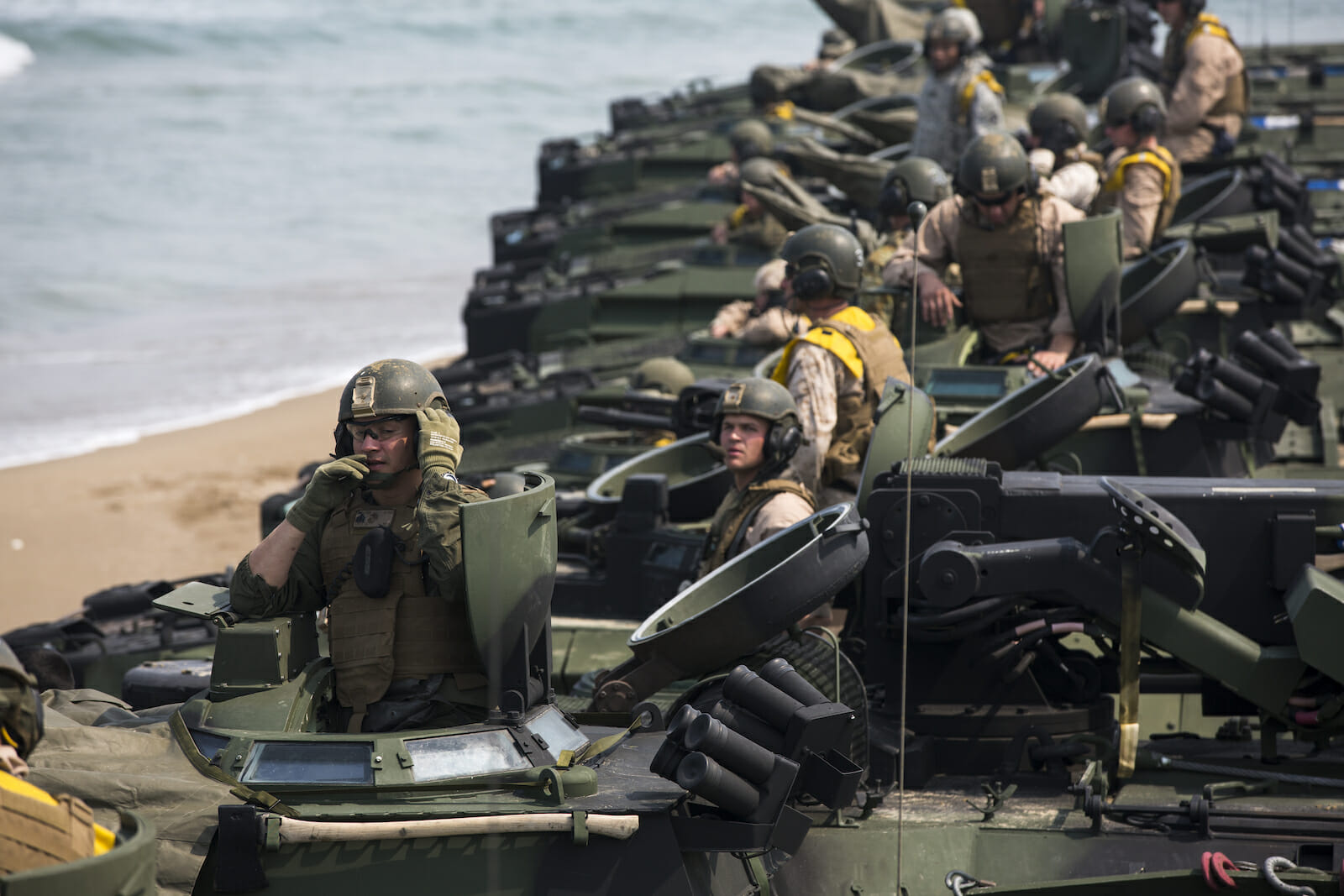
The Retreat of the United States and the Prospect of War
As the United States gradually recedes from its role as the guarantor of the world’s global commons, the chance of a major global conflict is rising. Prior to the Second World War, the world’s trading system was based on a policy of mercantilism, which in turn had led to the military conquest of nations in the underdeveloped world. After the titanic struggle between England, Spain, and France for control of the New World, the European powers competed with each other in establishing colonies in Africa and Asia. The majority of the colonial powers were from the European continent. The exception was the rise of Japan as an economic, industrial and military power, which began its colonizing policy towards the end of the mercantilist period. While the United States did have a colony in the Philippines it was not done for mercantilist reasons or for a desire for a colonial empire, but more for strategic and national security reasons.
Colonial wars began in the late 15th century with the discovery of the New World. While Spain was able to establish the first colonies by their original discovery of the New World, other European powers quickly mounted expeditions to the New World in search of riches and to establish their own colonies. The policy of mercantilism inevitably led to the establishment of colonies, the subjugation of the native population by military means and armed conflict between the European powers. These conflicts contributed to numerous conflicts and wars, which led to World War One and then to World War Two which ended the colonial era.
The end of World War Two saw a marked divergence from the traditional policies of a victor establishing itself as the new dominant world power. Previously, a victorious power would seize the colonial property of the defeated powers, and then set itself up as a hegemon based on its military strength. The United States at the end of World War Two followed a different path to global leadership.
In 1944, when the course of the war had become clear, and that the allies would win World War Two, the United States convened a conference at Bretton Woods. The conference was set up to discuss the post-war financial world, and to consider measures to begin the reconstruction of the devastated parts of the world that had been the scene of armed conflict, and whose infrastructure lay in ruins.
The seminal idea that emerged from the conference was the idea that instead of the old system of colonialism, the world would unite behind a system of free trade and that the age of colonialism would come to an end. Instead of nations going to war with each other to obtain access to markets to sell their goods and services, each nation would allow its private industries to compete with each other under rules that would be laid down, monitored and enforced in a peaceful and legal way. One of the many agreements that emerged out of the Bretton Woods conference was the pegged exchange rates, which collapsed in the early 1970s when the United States left the currency agreement and established a fiat currency. The fiat currency is now the standard monetary policy of the worldwide financial system.
The underlying floor of the free trade system was the unwritten understanding that the U.S. Navy would police the global ocean commons, and prevent any other nation from using military force to prevent free trade from occurring. The advent of the Cold War between the United States and the then Soviet Union only served to underscore the need of the U.S. Navy in protecting free trade. For just under 60 years, the United States acted as the world’s policeman, but that era is coming to an end.
The fall of the Berlin Wall and the reunification of Germany, coupled with the disintegration of the then Soviet Union, has changed the world political scene to such an extent that the age that Bretton Woods ushered in, is beginning to fail. Central to this failure was the disastrous invasion of Iraq by the United States under President George W. Bush. When the United States became mired in a guerrilla war in Iraq, other nations that had been hesitant to assert themselves on the world scene became emboldened, and the balance of power in the world began to change.
Since the Iraq invasion, the slow but inevitable decline of the United States as the guarantor of the global commons has continued. Since the election of Donald Trump who was elected on a populist message, nationalism that was latent in Europe has arisen and today threatens the very foundations of the European Union which has been an agent for peace and stability for 75 years. The current dissension in the European Union centers on Poland, Hungary, and Romania.
After the admission of 10 middle European countries in 2004, called the Big Bang, the EU has been plagued by dissension and political turmoil. On top of this turmoil, the decision by the EU to admit hundreds of thousands of refugees into the EU, over the vociferous protestations of a significant minority of European states has only contributed to the political turmoil being experienced in the EU. The exit of the United Kingdom, known as Brexit has dealt the EU a body blow. With the ruling CDU/CSU coalition in crisis, and the chosen successor of Angela Merkel for the Chancellorship of Germany stepping down after the election of a FDP member with the backing of the local AfD party in Thuringia, the strongest economy in the EU is in crisis with an internal political dispute that is hard to define. The EU is facing its most serious crisis since its inception and there does not appear to be a way forward at this time. All of these issues that the EU is facing is bringing the EU to a perfect storm, and its ability to survive has to be called into question.
Turkey’s economy under Recep Tayyip Erdoğan declined 1.9% in the first 3 quarters of 2019 but rebounded to grow 0.09% in the last quarter of 2019. Turkey has invaded Syria, after President Trump withdrew U.S. forces from the Syrian-Turkish border and the Turkish military attacked and drove Kurdish populations from their homes. Turkey has involved itself in the current civil war in Libya after the Turkish Parliament voted to allow Turkish troops to enter the civil war. On January 6, Turkish troops began to arrive in the country and are allied with the UN-backed government.
In the Pacific, the Philippines under President Rodrigo Duterte has served notice to the United States of its intention to void the Visiting Forces Agreement calling into question the durability of the Mutual Defense Treaty between the United States and the Philippines. The Philippines under Duterte has been moving slowly but steadily in aligning the Philippines with China. In particular, he has lashed out at the United States for U.S. criticism of his policy of the war on drugs. Duterte is also concerned about the lack of commitment by the United States to the Mutual Defense Treaty.
Under the Trump administration, the United States has announced its determination to withdraw from its former behavior as a policeman in the global commons. President Trump has continuously advocated an end to the endless wars the United States has been involved in since the terrorist attacks of 9/11. In this, the president has significant support from the American people.
The United States is beginning to withdraw from the Middle East and dis-entangle itself from defense treaties that it no longer finds in its national interest. Conflicts have begun on the periphery of this withdrawal and will only intensify as the withdrawal of the United States continues. With the absence of the United States as the guarantor of the global commons, more nationalistic and mercantilist behavior will increase. Already Russia has assumed an outsized role in the Middle East, threatens the independence of Belarus and the slow dismemberment of Ukraine. This withdrawal will allow brushfire wars to erupt in those regions the United States does not find to be in its national interest. Sadly, there will be more wars accompanying this new geopolitical reality.

